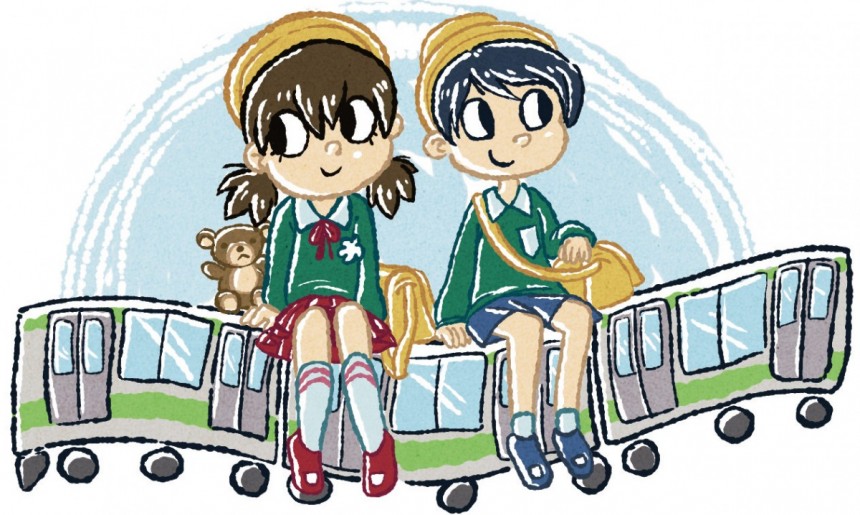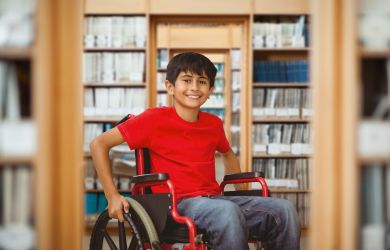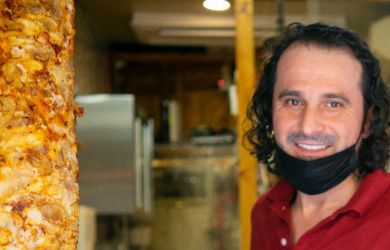
October 19, 2014
Stranger Danger
Dancing the line between paranoia and good parenting
She was the worst mom in America. Everyone said so: internet bloggers, TV news shows, radio talk DJs… Her name is Lenore Skenazy and she created a media firestorm in the U.S. a few years ago with one dangerous, unconscionable act: she let her nine-year-old son ride the subway by himself.
I wonder what those pundits and mommy bloggers would think of the trains in Tokyo. Here, it’s perfectly common for young children to use public transportation, walk to school and play in parks by themselves. Yet these same acts in the United States aren’t just frowned upon; they’re often considered criminal.
The stories abound. On a cool September day, a mother left her six-year-old son in the backseat of her locked and parked car while she spent less than five minutes picking up one item from a store. A concerned citizen called the police and she spent the next two years fighting charges of negligence and contributing to the delinquency of a minor. Another mother left her nine-year-old daughter playing at a park around the corner while she worked her shift at McDonald’s. The park was only a couple of blocks from their home, but a passerby called the police, who duly showed up at her work to take her into custody.
In Japan, my children play in the park by themselves all the time. They walk or ride their bikes to school by themselves. They can go to their friends’s houses without supervision, provided they come home when the streetlights turn on.
It’s the kind of upbringing my husband and I had—a kind of upbringing that has all but disappeared in the U.S. No longer is a parent permitted to make decisions about his or her own child’s maturity level and readiness for independence. Yet any stranger is qualified to make a judgment about their parenting and involve the police and child protective services without a second glance.
It’s different in Japan because it’s so much safer here. Right?
Japan is consistently ranked one of the safest countries in the world. However, as Skenazy likes to point out, violent crime rates in the U.S. have been declining steadily over the past several decades. In fact, they’re at their lowest levels since the early 1970s.
The problem is that facts don’t seem to matter much. A prime example: As Halloween arrives, American parents will be meticulously checking their children’s candy for suspicious-looking pieces. But most won’t be aware that the joy and simplicity of the holiday were permanently tainted by just one incident back in 1974, when Ronald Clark O’Bryan of Deer Park, Texas, killed his son by inserting cyanide-laced Pixy Stix into his Halloween haul. As a result of this targeted attack—though disguised to look random, it was for the insurance money; parents now worry that every block of candy-givers might hide some stranger out to harm their kids.
The idea of “stranger danger” never really took root in Japan. And that’s a good thing, because the U.S.’ stranger danger campaign has turned out to be one of the most successful and harmful campaigns in existence. The truth is that crimes against children are most often perpetrated by someone close to the child: a family friend, a teacher, a family member—someone the child knows and trusts.
Even though I know all of this—even though I think of myself as a reasonable, logical parent—I don’t allow my children the same freedoms in the U.S. that they’re afforded here. Forget going to the store by themselves; back home I start to panic if they’re not in the same aisle as me in the grocery store. And even if I don’t panic myself, there’s still the concern of being seen as a bad parent for treating my children the same in one country as in another.
Maybe by the time we leave Japan, my parenting practices and confidence will have matured to the point that I’ll be able to trust my kids and my own instincts. Maybe by then the U.S. will have gotten a grip on its neuroses and let parents make reasonable decisions about what their children are old and mature enough to handle. Or maybe by then my children will just be so old I’ll no longer have to worry about these things in the first place.





